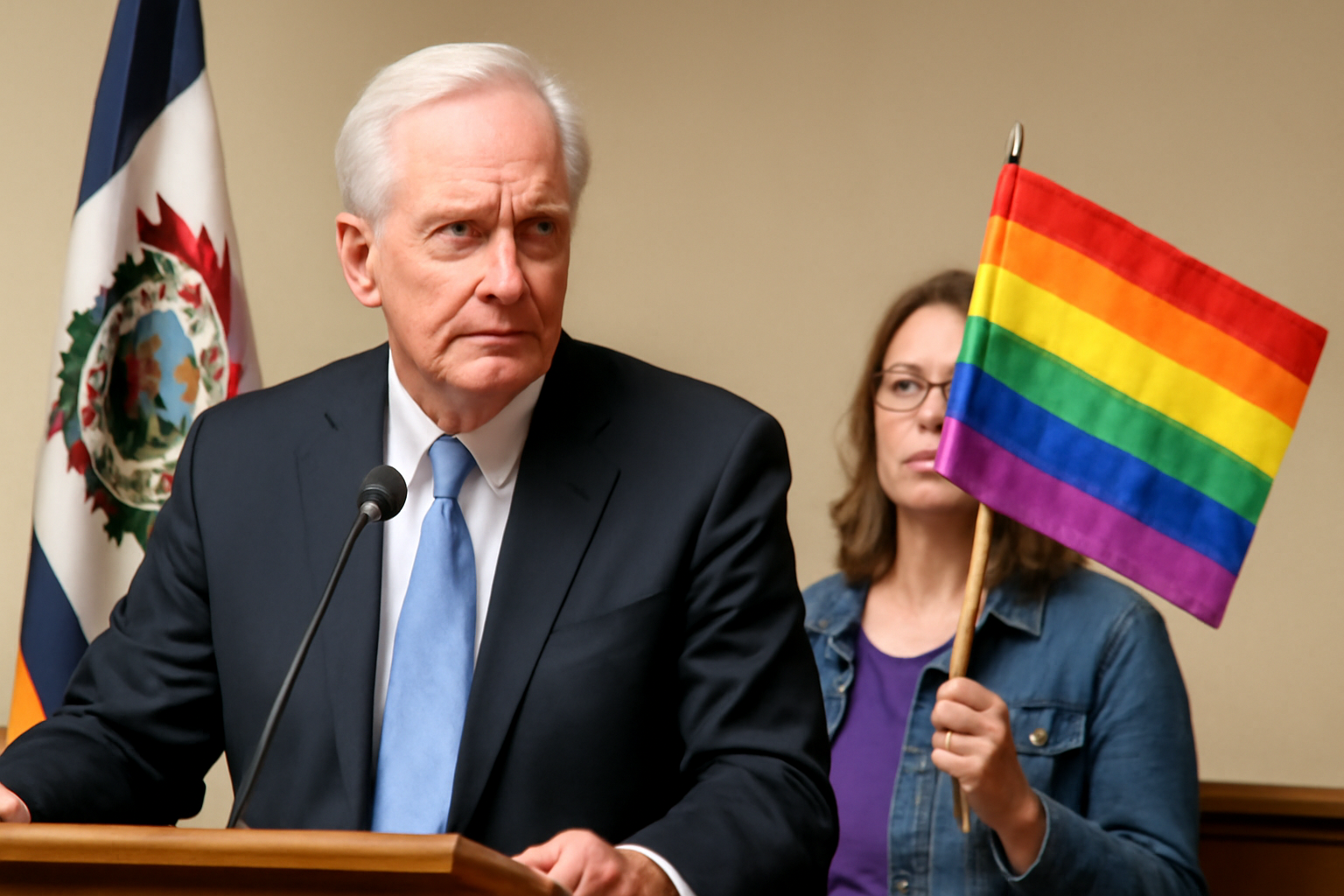
The West Virginia Senate has recently taken a significant step that could have considerable implications for LGBTQ+ protections across the state. On a notable session this past Monday, the Senate gave its approval to a bill that aims to nullify local ordinances designed to protect against discrimination based on sexual orientation and gender identity. This legislative move has stirred considerable debate and concern within both local communities and statewide advocacy groups.
The bill in question, Senate Bill 579, was passed with a significant majority, garnering a 25-8 vote in its favor. This development means that the bill will now proceed to the West Virginia House of Delegates for further consideration and potential enactment into law. The passage of this bill has been met with mixed reactions, reflecting the varied opinions on the role of local versus state governance in protecting minority rights.
Since 2016, approximately 20 cities within West Virginia have taken proactive steps to ensure inclusivity and protection for their LGBTQ+ residents by adopting ordinances that explicitly prohibit discrimination based on sexual orientation and gender identity. These local measures have been seen as critical tools in fostering safe and welcoming communities for all residents, particularly those from marginalized groups.
One of the most vocal oppositions to this Senate bill has come from grassroots organizations and advocacy groups that are deeply invested in maintaining and expanding these local protections. Justice Hudson, a representative from the Friendlier City Project, an LGBTQ rights group based in Wheeling, WV, expressed their concerns and frustrations in response to the bill's advancement. "We are an LGBTQ nonprofit organization set up to, you know, make this city called the Friendly City, make it a friendlier city, make sure it lives up to that promise," Hudson shared in a televised interview. "So, we’re really, you know, looking at this bill and fighting against it."
Hudson further highlighted a critical aspect of the debate, emphasizing the importance of local governance and the ability of city leaders to cater to the specific needs of their constituents. "At the same time, though, I think we should also note that it is stripping cities of their power. And like I said earlier, you know, city leaders know their citizens best," Hudson added. This sentiment underscores a broader discourse on the balance of power between state and local governments, particularly when it comes to safeguarding civil rights.
The argument posited by supporters of Senate Bill 579 centers around the notion of creating a uniform standard across the state, arguing that a single, state-level policy may eliminate confusion and potential conflicts between differing local ordinances. Proponents suggest that such a move could streamline governance and ensure consistency in legal frameworks. However, opponents argue that this approach might overlook the unique cultural and social dynamics of individual communities, potentially leading to a dilution of protections that have been tailored to local contexts.
The bill's progression comes at a time when LGBTQ+ rights and protections are a focal point of national discourse, reflecting broader societal debates on equality, identity, and the role of government in ensuring fairness and justice for all citizens. As the West Virginia House of Delegates prepares to deliberate on Senate Bill 579, advocacy groups, community leaders, and concerned citizens are mobilizing efforts to either support or oppose the legislation, with many viewing it as a pivotal moment in the fight for LGBTQ+ rights in the state.
As this legislative process unfolds, it is crucial for residents and stakeholders to remain informed and engaged. The outcome of this bill could have lasting implications for how discrimination is addressed at both state and local levels, influencing the everyday lives of countless West Virginians. Whether through public forums, contacting legislative representatives, or participating in advocacy initiatives, the voices of individuals and communities will play a vital role in shaping the future of LGBTQ+ protections in West Virginia.
In conclusion, the West Virginia Senate's approval of Senate Bill 579 marks a critical juncture in the ongoing dialogue about the rights of LGBTQ+ individuals and the power dynamics between state and local governments. As the bill moves to the House of Delegates, the spotlight remains on West Virginia to see how it navigates these complex issues of inclusivity, governance, and civil rights.
Related Posts
Triumphant Trans Woman Wins Legal Battle and Inspires Others to Stand Up for Their Rights
Breaking new ground: a landmark victory in transgender rights After battling in courtrooms and enduring endless challenges, Diana Portillo, a transgender woman, has secured a monumental victory in her decade-long fight against workplace discrimination. The result? Nearly $1 million awarded in a historic settlement. But this isn't just a win on paper—it represents a powerful precedent in combati [...]
Pride Month in Latin America: Protests and Demands for Equality
**Celebrating Pride and advocating LGBTQ+ rights in Latin America** Pride Month in Latin America was a lively mix where celebration met activism. Communities united, not just throwing a party but making a stand—demanding equality and pushing governments toward better protection and rights recognition. Throughout Latin America, pride events erupted in marches and cultural displays, each with a c [...]
Transgender Erasure Actions Implemented by National Park Service
```html Trump administration's impact on national park service and transgender recognition The Trump administration made notable moves in undermining transgender representation, which included directing agencies like National Park Service not include "T" and "Q" when they refered “LGBTQ” in any official communication. This move seems part a broader plan by this administration aimed at reducin [...]